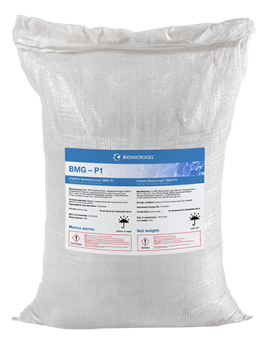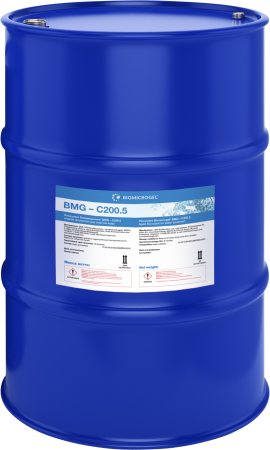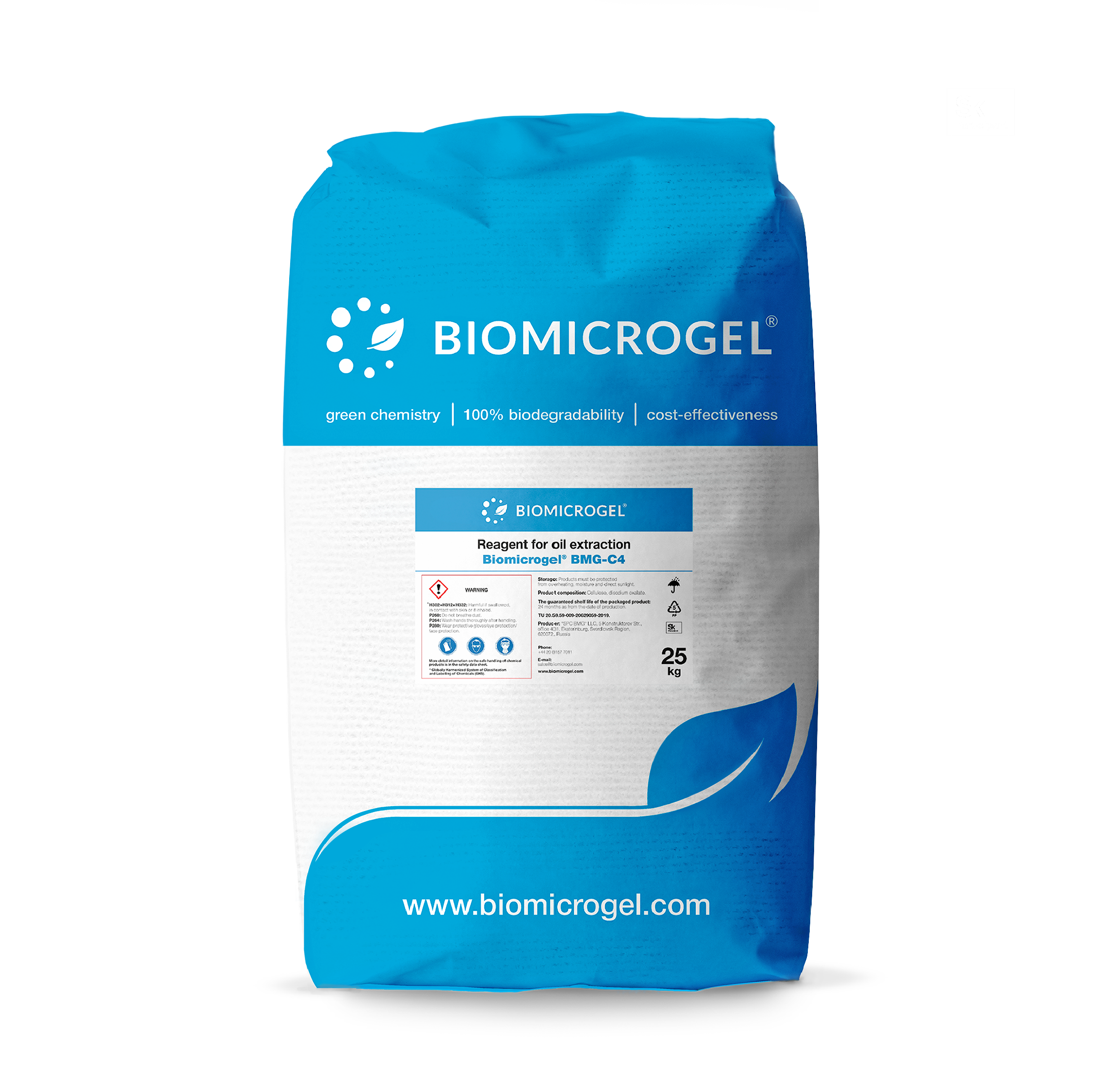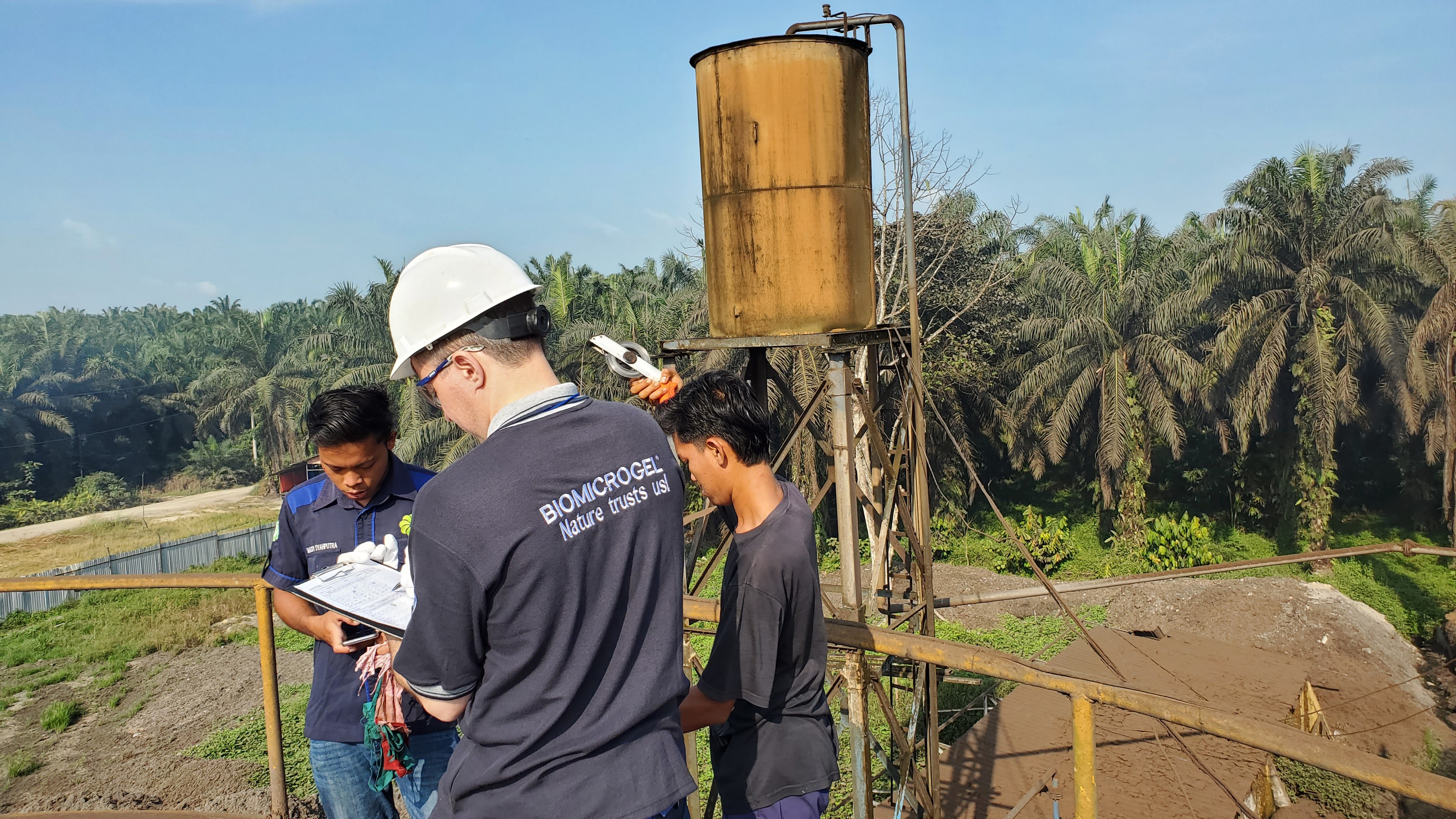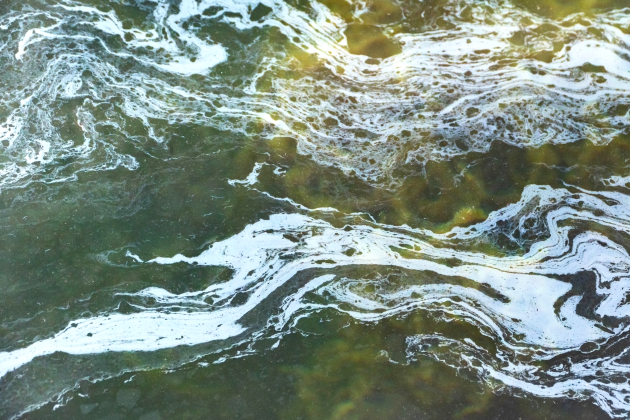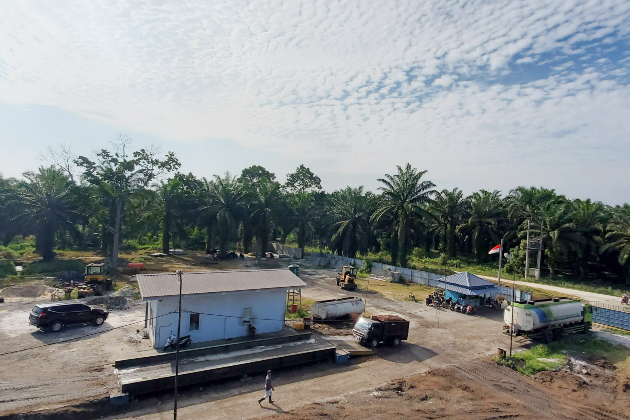Natural biopolymers and their advanced modifications are used today in various scopes of human activity — Biomicrogels Group
BIOMICROGELS GROUP, an international fast-growing technology group of companies founded in 2012 by a team of engineers who created the groundbreaking Biomicrogels® technology aimed at solving the global challenges of saving fresh water and reducing greenhouse gas emissions.
As of today, the BIOMICROGELS GROUP is the only Russian company that holds the Ecolabel eco-certificate in its product category. The Group was recognized at the G20 international summit as the best technology company among the G20 countries in the clean technology category.
ESG.ru.com interviewed Alexander Yagupov, R&D Director of the BIOMICROGELS GROUP.
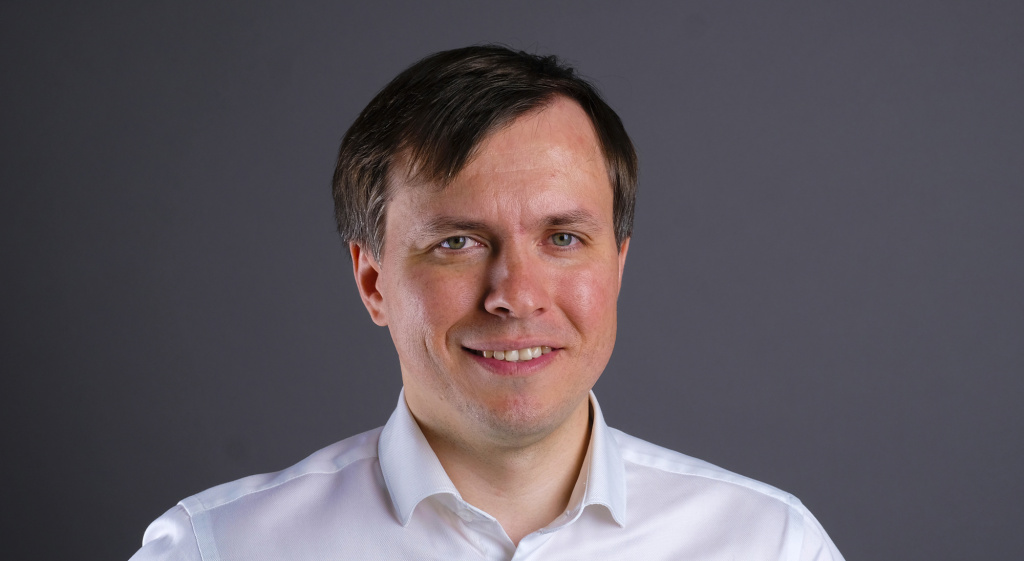
– Is your company going to patent any other new technologies? If yes, in which sector?
– BIOMICROGELS GROUP has made it possible to use biopolymers for treatment and processing of industrial waste through the use of widely spread and globally available raw materials, which are basically agricultural waste – sugar beet pulp, apple pomace and sunflower baskets.
The natural biopolymers and their advanced modifications, which replace standard synthetic petroleum-based polymers, are used today in various scopes of human activity – in medicine, pharmaceuticals, agriculture and food industry, cosmetology. Experts believe that with the tightened requirements for the processing and disposal of wastes, with the increased pressure on manufacturers demanding them to make their products eco-friendly, and with the advancement of ‘green’ agenda, the global market of biopolymers will grow by 25% in the next 5 years.
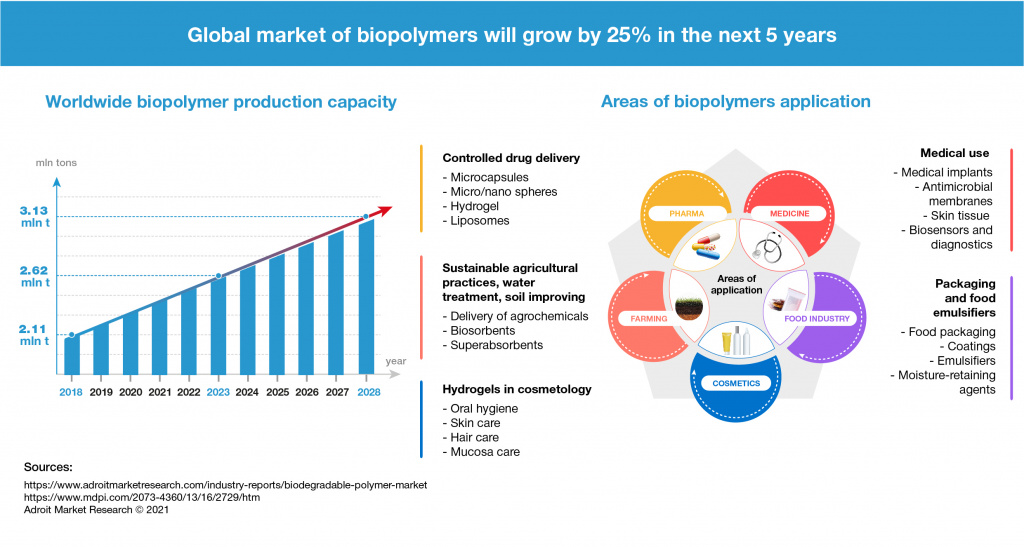
Today the technology from BIOMICROGELS GROUP is protected by more than 100 patents in 62 countries, including more than 20 countries in Europe, Russia, USA, Canada, India, China, Southeast Asia and the Persian Gulf.
But BIOMICROGELS GROUP does not stop there; the company continues its scientific research on the potential use of Biomicrogels® technology in a variety of areas that demand sustainable solutions based on biopolymers – solutions to the global problems of mankind, such as the shortage of clean fresh water on the planet and the growth of greenhouse gas emissions. The company is researching the possible application of Biomicrogels® in water treatment and purification, in biodegradable coatings and materials, to produce new functional polymers, organic reagents, etc.
– Does your company work with large oil and gas companies? Could you please name some of them? Do they buy your technology? Are there any metallurgical companies among your customers?
– SPC BioMicroGel works with such companies as Russian Railways, Pervouralsk New Pipe Plant (PNTZ), Chelyabinsk Pipe-Rolling Plant (ChTPZ), the Novolipetsk Steel Mill (NLMK), Norilsk Nickel, Severstal, Gazpromneft, Lukoil, as well as many foreign ones.
Modifications of biopolymers based on Biomicrogels® technology are used for neutralization of cutting fluids (cooling lubricants) at metallurgical and pipe-rolling plants. This technology offers 2-3 times lower cost of coolant processing compared to the traditional methods of disposing the cutting fluids. Besides, the water after such treatment complies with the LOC standards. From the ecological point of view, it is important that separation of the coolant takes place without the introduction of sorbing agents commonly used in similar processes. This removes the problem of disposing the waste materials, which are currently being dumped. In addition, the Biomicrogel®-based reagents as well as the unit for their preparation don’t require evaporation or additional heating of the emulsion and, as a result, bring down electricity or gas costs, as well as decrease hydrocarbon emissions into the environment, which allows companies around the world to reduce their carbon footprint and comply with global ESG policy.
For example, one of the leading steel companies in Russia widely uses cutting fluids (cooling lubricants) in its production cycle, which, after use, should be disposed of in a responsible manner under strict norms and procedures. To solve these tasks, SPC BioMicroGel offers a whole line of coolant separation units with a rated capacity of 100 to 10 thousand cubic meters per month.
The content of oil products in the effluents of this metallurgical plant reaches up to 2500 mg/dm3. The customer has set the following requirements for purified water: efficient reduction in the residual concentration of oil products to a level of less than 10 mg/dm3 at pH in the range of 6.5-8.5 and with a minimum amount of sediment. To solve this problem, the Biomicrogels® Demulsifier BMG-P7 is used in the form of a 2% aqueous solution, which is binding emulsified drops of oils and petroleum products, forming stable insoluble compounds. During further processing, a precipitate is formed, which is removed by the means of filtration or settling. Thanks to the use of the Biomicrogel® Demulsifier, it was possible to effectively separate the used cutting fluid, providing:- decrease in the content of oil products in water from 2 500 mg/dm3 to <1 mg/dm3;
- pH value of purified water in the range of 6.5-8.0;
- sludge share of 2% of the volume of treated cutting fluid;
- eliminating the need to heat the cutting fluid during the cleaning process.
With Biomicrogels® technology, it is possible to regenerate the BMG-P7 working solution and recover the collected oil products from the sludge. Therefore, with the sufficient quality of the recovered oil product, it is possible to reduce waste generation or even completely eliminate production wastes.
For the oil industry, the company has developed Biomicrogels® - based solutions for the treatment of industrial and storm wastewater from oils and oil products before discharging it, allowing to reach the residual oil product content to the level of <1 mg/l thus reducing the volume of wastes for dumping / disposal. Besides that, the company’s solutions help to localize and collect thin oil films from the surface, and to purify reservoir, associated produced, waste, formation water, as well as the water pumped into the reservoir pressure maintenance system.
In June-August 2020 SPC BioMicroGel took part in eliminating the impact of the environmental disaster in the Arctic, when more than 20 thousand tons of diesel fuel spilled in the vicinity of Norilsk. The two BioMicroGel products were used in that project: Spilltex® filtering material and Biomicrogels® BMG-P2 coagulant for water purification. These solutions demonstrated high cleaning efficiency, which was confirmed by an independent accredited laboratory and corresponding water sample tests. After this project, the company received letters of thanks from both the organization responsible for the accident and the Russian Emergencies Ministry.
– Could you please name the companies that are planning to launch industrial wastewater treatment projects in the near future?
– Another area, where Biomicrogels® technology can be applied, is the treatment of industrial and storm wastewater from industrial enterprises in various industries: metallurgy, oil production, oil refining, food, transportation industry, etc. The industries are facing the following problems when treating wastewater: insufficient efficiency of existing technologies in separation of oils, fats and petroleum products (with residual content of such products at 30-60 mg/l and more, while the optimal level is 0.05-1 mg/l), high capital expenditures and operating costs. Biomicrogels® BMG-P2 coagulant and Biomicrogels® BMG-C2 flocculant effectively capture any mineral and vegetable oils, animal fats, as well as oil and oil products in water reducing their residual content down to 0.05-1 mg/l. After separation of the oil-water mixture, purified water can be returned to the technological cycle and reused.
The use of eco-friendly and biodegradable Biomicrogels® reagents for water treatment makes it possible to achieve the target values for residual level of oil products required by the legislation of the Russian Federation – without the need for expensive upgrades of the existing equipment. With such a high-quality purification the companies don’t have to pay environmental fees for negative impact on the ecology or to pay fines for exceeding the content of oil products in wastewater. It is also important that Biomicrogels® are produced from vegetable raw materials, therefore their use is fully consistent with the principles of the “green” agenda and decarbonization goals for manufacturing formulated at the global level by both governments and businesses. Biomicrogels®-based reagents eliminate greenhouse gas emissions during their production or subsequent combustion of the used reagents, and as a result they reduce carbon emissions into the environment, allowing the companies around the world to reduce their carbon footprint and comply with global ESG policies.
One of the use cases for this technology in cleaning oil-containing industrial wastewater is locomotive depots – facilities maintenance and repairs of rolling stock, diesel locomotives and wagons. Wastewater in depots is being contaminated with oil products when washing trailing stock, as well as cleaning and steaming the railway tanks. Exceeding the permissible concentrations of oil products in wastewater can disrupt the operation of urban wastewater treatment systems, therefore, strict requirements are imposed on the quality of wastewater, and in case of their violation, the depot may incur additional costs – various fines for the negative environmental impact. SPC BioMicroGel offered its own solution based on the BMG-C2 flocculant, which made it possible to purify the wastewater generated at depots from oil products to the required standards – below 0.05 mg/l.
– What are Biomicrogels made of?
Biomicrogels® are biodegradable polymers derived by deep processing of agricultural raw materials: apple and beet pulp, which makes them completely safe for nature and humans and quite affordable.
Biomicrogel® technology will purify water up to 10 times more efficiently and economically than comparable solutions, while optimizing the process in terms of energy costs and reducing greenhouse gas emissions.
Biomicrogel technology uses a completely new principle – it encloses oils in microcapsules, separates them from the surface or water, and after separation, both oils and purified water can be returned to the technological cycle and reused. The biopolymers themselves are completely biodegradable – they decompose by 98% within a day after applying, and 100% biodegradation (biodestruction) occurs in 3 days. Therefore, the sludge resulting from the water treatment belongs to the wastes of the safest class and can be easily disposed of to completely harmless components.
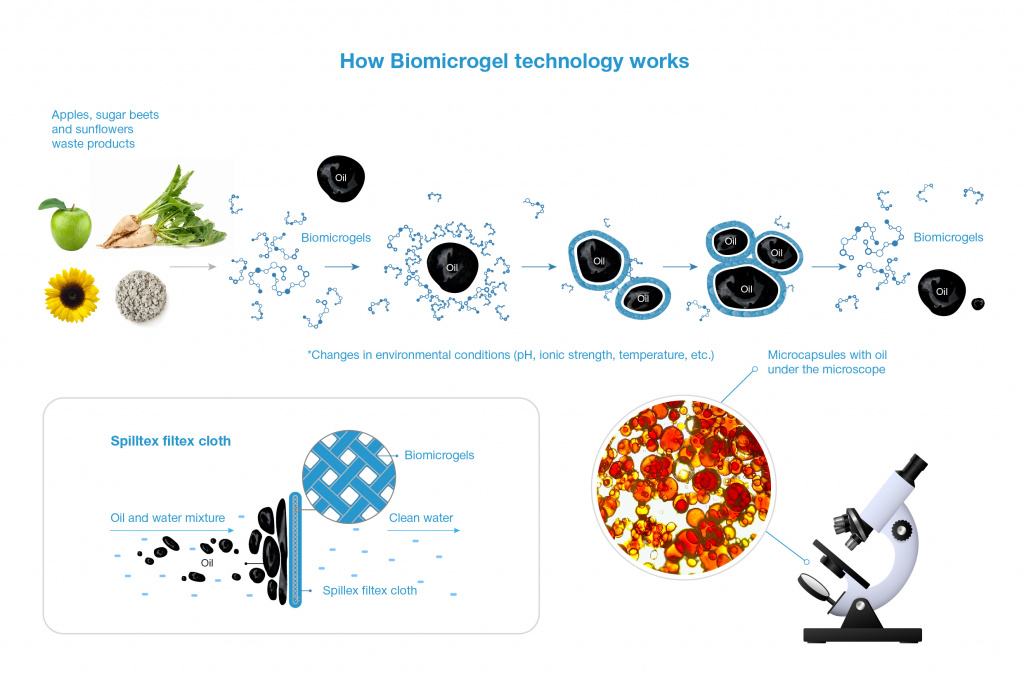
At the international G20 summit, Biomicrogels® technology was recognized as the world’s best in the Cleantech category.
Isle Utilities Limited (Isle, UK), an international consulting company that has been specializing in technology assessment and best innovative practices for more than 30 years, has confirmed the most important properties of Biomicrogels® products and solutions that are based on these products, admitting their high efficiency, complete biodegradability, compliance with the principles of "green chemistry", economic efficiency, as well as uniqueness of these products and technologies.
– How do they work in terms of fresh water conservation?
According to a study by the Global Carbon Project, harmful emissions into the atmosphere continue to grow every year. For example, in 2020, even despite the pandemic and the decline in industrial activity, carbon dioxide (CO2) emissions set a new record, reaching the volume of 36 billion tons per year. The increase in harmful impurities in the atmosphere leads to a "greenhouse" effect and climate change, as well as a shortage of clean fresh water. Fresh drinking water makes up less than 3% of the world's water resources, of which 2.5% are glaciers in the Antarctic, Arctic and mountain regions, as well as underground sources. Therefore, humanity can count on only 1% of water resources to meet the needs of all anthropogenic ecosystems and the needs for fresh water. However, today humanity is polluting water resources faster than nature can actually restore water in rivers and lakes. More than 2 billion people on the planet do not have access to safe fresh water.
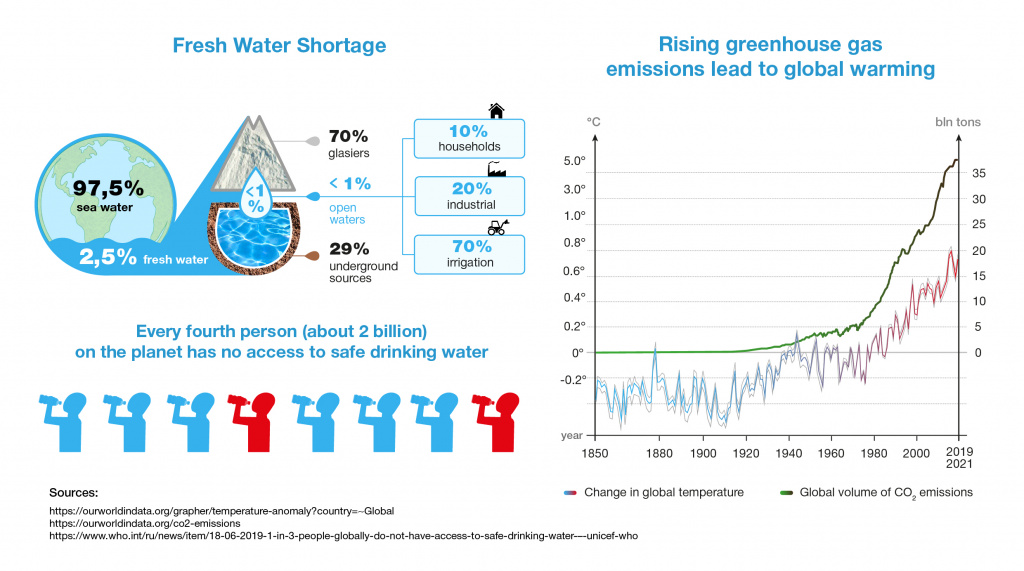
In everyday life, all the surface cleaning processes are associated with the use of detergents, energy costs, and water consumption. Detergents sometimes contain toxic, allergenic, non-biodegradable components that pollute wastewater, while high concentrations of surface-active substances (surfactants) require additional water consumption for rinsing. Biomicrogels® are derived from vegetable raw materials, they are safe for humans (hypoallergenic), pets and the environment (including water bodies and microorganisms that live there). Therefore, detergents based on Biomicrogels® contain minimal amounts of biodegradable surfactants in their composition and zero unwanted components, which ultimately minimizes water pollution. Since Biomicrogels® can be quickly and completely washed off, they also ensure 2 to 40 times better rinsability for surfactants, minimizing the amount of water required for rinsing. Detergents based on Biomicrogels® work efficiently even in cold water, so no additional energy consumption is required for cleaning (washing) processes.
The production of Biomicrogels® does not result in additional CO2 emissions (zero emissions in Scope 1 = 0). This technology uses widely available agricultural waste, such as apple pulp, which is not used anywhere else and is mostly utilized by composting, thus, resulting in the equivalent of releasing of 1.1 kg of CO2 per 1 kg of pulp. The use of such pulp as a raw material minimizes the own carbon footprint of the Biomicrogels® production. Taking into account the required energy, the Scope 2 does not exceed 0.36 kg of CO2-eq. per 1 kg of product.
In general, the process of using Biomicrogels® is as follows: Biomicrogels® cover any oils with a film, forming microcapsules and quickly binding them together - in this form, oils can be easily separated from water, and after separation, both oil and water can be easily returned to technological process. Thus, the enterprises can reuse water resources.
For example, the use of Biomicrogels® to dispose spent cutting fluids (cooling lubricants), even without regeneration, allows to reduce СО2 emissions by 365 kg СО2-eq. per each cubic meter of spent cutting fluid, compared to the conventional technology of evaporation and subsequent combustion of a concentrated residue. Considering the low dosage of Biomicrogels® (below 150 mg/l), when calculating the carbon footprint in Scope 3, each kilogram of Biomicrogels® used in the recycling of spent cutting fluids in the metallurgical industry reduces greenhouse gas emissions by 600–1500 kg of СО2-eq. within its life cycle!
The same refers to using this technology in vegetable oil production, where Biomicrogels® can reduce the carbon footprint of palm oil production technology by 1 million tons of СО2-eq. per year. This effect is achieved through:
• reducing the total volume of water used in this technology by 16%;
• reducing the energy consumption by 23%;
• increasing the oil extraction rates and the factory performance by 30%;
• two-fold decrease of the oil content in POME (Palm Oil Mill Effluent) discharged into settling ponds.
Solutions based on Biomicrogels® will make it possible to reduce global СО2 emissions by up to 23 million tons per year when treating industrial wastewater from oils, fats and petroleum products, processing and disposing used cutting fluids, in oil spill response, and increasing the vegetable oil production yields.
Since agricultural wastes containing large amounts of polysaccharides are commonly widespread throughout our planet, it is possible to select suitable raw materials for the production of Biomicrogels® almost anywhere in the world and to localize the production of Biomicrogels® in order to minimize the carbon footprint from transportation of raw materials and finished products.
Source: https://esg.ru.com/prirodnye-biopolimery-i-ih-peredovye-modifikacii-ispolzuyutsya-segodnya-v-samyh-r...


